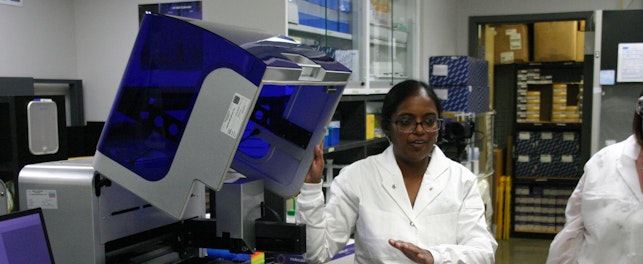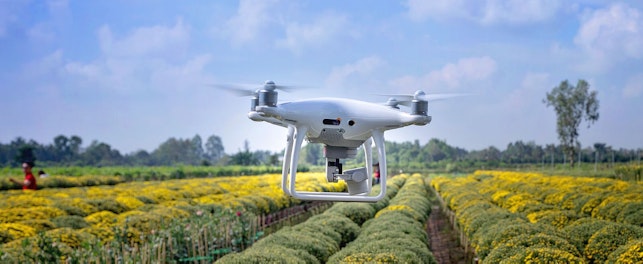Field trials play a pivotal role in the development and success of agricultural products. By generating reliable, high-quality data, these trials support critical milestones such as product registration, efficacy claims and market positioning. Whether you are evaluating plant protection products or exploring innovative biostimulant solutions, the integrity of your data is paramount.
Efficacy vs. biostimulant field trials: What are the differences?
Efficacy and biostimulant field trials serve different but complementary purposes in agricultural research and product development.
Efficacy field trials are conducted under strict regulatory guidelines to ensure that the data produced is both reliable and scientifically robust. These trials are primarily used to support the registration and approval of plant protection products (PPPs), such as insecticides, fungicides and herbicides. By following the rigorous standards set by organizations like EPPO (European and Mediterranean Plant Protection Organization), efficacy trials focus on testing a product's effectiveness in controlling pests, diseases and other harmful organisms. The goal of this is to generate reliable data that meets regulatory requirements, ensuring that products perform effectively and safely in real-world conditions.
In contrast, biostimulant field trials focus on evaluating the impact of products that enhance crop performance in ways that extend beyond pest and disease control.
These trials examine aspects such as crop health, stress tolerance, and nutrient uptake efficiency.
Biostimulants aim to improve the overall resilience and productivity of crops, helping them withstand environmental stressors, optimize nutrient use, and grow more effectively. While efficacy trials are essential for demonstrating the effectiveness of pest control products, biostimulant trials provide insights into how products can improve crop health, yield, and long-term sustainability.
The main distinction between the two types of trial lies in their focus: efficacy trials assess the direct impact of products on pest and disease management, while biostimulant trials focus on broader agricultural benefits, such as improving crop vitality and supporting environmental sustainability. Efficacy trials are critical for regulatory approval and ensuring that products meet safety standards for pest control, while biostimulant trials offer valuable information about how products can contribute to healthier, more productive crops. Both types of trials are integral to the development of innovative agricultural products, providing businesses with the data they need to enhance product offerings and meet market demands.
Summary of efficacy field trials vs. biostimulant field trials

The field trial process
To achieve reliable and reproducible results, field trials typically follow a structured process, which is adaptable to both efficacy and biostimulant trials. This process is as follows:
- Trial planning and protocol development
- Define the objectives, methodology and compliance requirements, setting the foundation for a robust trial.
- Site selection and preparation
- Choose and prepare the optimal location to ensure that the results are both meaningful and representative.
- Treatment applications
- Implement proper and consistent application techniques, which are critical for maintaining trial integrity.
- Data collection and assessments
- Conduct regular monitoring and systematic assessments to gather accurate and comprehensive data.
- Statistical analysis and interpretation
- Analyze the collected data rigorously to extract actionable insights and validate the trial outcomes.
- Reporting and documentation
- Compile a formal report summarizing the findings and providing clear recommendations based on trial results.
At SGS, we are committed to empowering the agriculture industry through innovative solutions and expert guidance. By following these steps, companies can generate reliable field trial data, ensuring informed decisions and driving successful product development.
If you would like to learn more about field trials and how SGS can support you throughout the process, read our newsletter: Focus On Field Trials | SGS.
For further information, please contact:
Rebecca McCrosson
Natural Resources Marketing Specialist
t: +44 (0)7818 576847
About SGS
SGS is the world’s leading Testing, Inspection and Certification company. We operate a network of over 2,500 laboratories and business facilities across 115 countries, supported by a team of 99,500 dedicated professionals. With over 145 years of service excellence, we combine the precision and accuracy that define Swiss companies to help organizations achieve the highest standards of quality, compliance and sustainability.
Our brand promise – when you need to be sure – underscores our commitment to trust, integrity and reliability, enabling businesses to thrive with confidence. We proudly deliver our expert services through the SGS name and trusted specialized brands, including Brightsight, Bluesign, Maine Pointe and Nutrasource.
SGS is publicly traded on the SIX Swiss Exchange under the ticker symbol SGSN (ISIN CH1256740924, Reuters SGSN.S, Bloomberg SGSN:SW).
16th Floor, Block A, No.73 Fucheng Road, Century Yuhui Mansion,
Beijing, Haidian District, China



